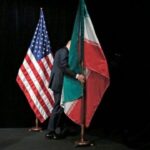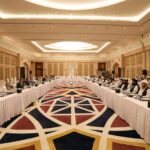President Ashraf Ghani met with his Uzbek counterpart Shavkat Mirziyoyev in Tashkent, the capital of Uzbekistan, on the first day of his two-day visit to the country, the Presidential Palace said in a statement on Thursday.
During the meeting, President Ghani and President Mirziyoyev discussed “bilateral economic cooperation, security, and political issues related to the Afghan peace process where both sides highlighted the importance of regional consensus in support of the peace process, the government and people of Afghanistan,” the statement said.
“They also talked over mutual trade and transit relations between the two countries, particularly power projects and railway construction,” according to the statement.
Also, Subrahmanyam Jaishankar, India’s external affairs minister, met with President Ghani in Tashkent today and discussed “the current situation in and around Afghanistan,” Jaishankar tweeted, adding that India reiterated its support for “peace, stability and development of Afghanistan.”
On Thursday morning President Ghani left Kabul for Tashkent to attend an international summit named “Central and South Asia: Regional Connectivity, Challenges and Opportunities,” the Presidential Palace announced.
The summit will host leaders from South and Central Asia and is aimed at strengthening connectivity between the two regions.
The summit will have three common themes of discussion: economy, security and culture.
It is aimed at refreshing historical ties between Central and South Asia.
The leaders of four Central Asian states, together with the Prime Ministers of India and Pakistan, have been invited to the summit.
“As you know, Afghanistan as a transit hub in the region plays a valuable role in regional connectivity, especially in Central Asia and South Asia,” said Latif Mahmoud, a presidential spokesman.
He added: “There would also be discussion on opportunities in Central Asia and South Asia. President Ghani will also meet with his Uzbek counterpart Shavkat Mirziyoyev and will discuss Afghanistan’s role in Central and South Asia and key economic projects.













